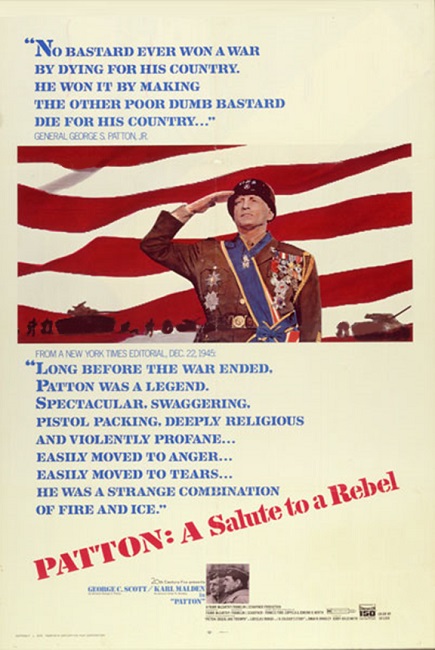
Patton – 1970
Patton was a difficult movie for me to watch for two reasons. I can’t claim that it was a bad movie, by any means. It was good. It was well made and entertaining. The acting was good. George C. Scott and Karl Malden both did a superb job. The production values were high, there was plenty of fast paced action, and a plot with substance. But first and foremost, it was a war film about World War II, which is generally not my favorite kind of movie to watch. Second, it was about a man who, right from the famous opening scene of Patton giving his “Pep-talk” in front of the giant American flag, was portrayed as a red-neck, over-the-top, ultra-military asshole – a character who I had a tough time liking.
But I think the movie actually did its job. It never claimed that Patton, fantastically played by George C. Scott, was supposed to be a likeable character. The really amazing thing about the film was that by the end I really understood what it was trying to say. It can be summed up in one statement: Many great military leaders like General George S. Patton ARE assholes that treat most people like the dirt on the bottoms of their shoes, but in times of war, they are exactly what are needed to keep our nation safe and give us victory over those who would destroy us.
You see, despite the fact that he was hard, inflexible, and often demanded the impossible from the soldiers under him, he was also a brilliant field commander. To his credit, when he placed his men on the front lines of battle, when he forced them to march without food or rest in horrible conditions, he was usually right there with them, enduring everything right along with them.
Scott portrayed him as being as tough as nails, as tough as any of his soldiers. This earned him the respect and unfailing loyalty of those who served under him, despite the fact that his tactics often got a lot of men killed, earning him the name of Blood & Guts Patton. However, in then end the soldiers saw that he save more men than he sacrificed. Add to that the fact that he continually gave them victory after victory, and it was easy to see why he was so incredibly popular with the troops.
The film also portrayed General Patton as a man who’s red-neck attitudes and big mouth often got him into trouble. There was one scene in particular by which I was actually incensed. In this scene, Patton is visiting a field hospital tent and praising the wounded and dying men for their courage and sacrifices. But then he finds a soldier who has had a mental break-down and is simply too terrified to return to the battle. Patton calls him a coward, among other things, loses control of himself, slaps the poor man, and shouts orders that the man be taken back to the front line immediately where he is sure to be killed. Then he goes even further, screaming that there is no place for cowards in his army, reaching for his gun, and threatening to execute the man on the spot for his despicable behavior.
Needless to say, the incident gets him removed from his command.
Another layer to Patton’s character that the film spends considerable time acknowledging, is an interesting one. He apparently believed very strongly in reincarnation. He believed that he had also been a military leader in several past lives. During conversations with others concerning historical wars, he would claim that he had actually been at those ancient battles. Most people would laugh such boasting off as some kind of a joke, but he was portrayed as a firm believer in what he was saying. A little time was also devoted to portraying him as a self-styled poet.
All this is very well and good. But like any historical drama, I had to do a little research and find out how historically accurate was the character portrayed. Did the scriptwriters, Francis Ford Coppola and Edmund H. North, get it right? I think that if a film is about a historical event or figure, there is a certain amount of accountability as to accuracy.
Interesting note: George C. Scott certainly had the right look in the face. He looked amazingly like the real Patton. However, Scott’s low, gravelly voice was quite different than Patton’s voice, which was high-pitched and nasal.
The actual movements of Patton, his military campaigns and such were all very accurate. The personality was also pretty spot-on, except that he was actually tamed-down for the film. He was known for his use of “foul language” when such language would be effective, though most of the curse words were removed for the movie. The slapping incident was also notable because he actually slapped two different men on separate occasions. His military brilliance was covered very well, and they certainly pulled no punches regarding the punishments he endured because of his big mouth. My research also uncovered the truth regarding Patton’s strong belief in reincarnation.
As a matter of fact, Director Franklin J. Schaffner seemed to go out of his way to include as much historical detail as he could. The over-sized markers on Pattons jeep, the correct medals worn in the opening sequence, the costumes, the ivory-handled gun he wore, the dates, the locations, the battles: it was all there, just like the history books say. I must admit that the attention given to all these details was pretty impressive.
Another actor in the film that is worthy of note is Siegfried Rauch who played Captain Oskar Steiger of the Third Reich. He is a member of the Nazi High Command who studies Patton, trying to anticipate him, and at the last, as the Germans are losing the war, he is seen burning all the Reich’s paperwork, including a photograph of the man who bested him, General George S. Patton. I personally thought Rauch did a great job with his relatively small part.
And lest I forget, Karl Malden was also an integral part of the story. He played General Omar Bradley. At first he was Patton’s subordinate, but because of Patton’s disfavor with Eisenhower over the slapping incident, he advanced in rank and became Patton’s commanding officer. He was also Patton’s friend and was able to manage the man more than most. Malden did a very good job, tempering his frustration with Patton’s mouth with admiration for his obvious skills as a military leader and tactician. One of Bradley’s best lines in the film was, “There’s one big difference between you and me, George. I do this job because I’ve been trained to do it. You do it because you LOVE it.”
And that leads me to one final part of Patton’s personality that this film got right: his ego. At one point the character even admitted he was a prima-donna. He loved the glory that came along with being victorious. He had a habit of upsetting his superiors by going out of his way to be recognized for his military feats. And I think that as much as he loved the world watching him in his spotlight, he loved seeing himself in that same spotlight. He fervently believed that he was better than everyone else and that he truly deserved to be in command of other men. Just one more thing that made him an unpleasant person, and yet exactly what the Army and, indeed, the nation, if not the world, needed at that time in history. It is what made him a true American hero.
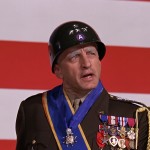
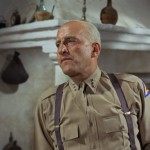
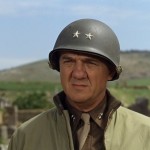
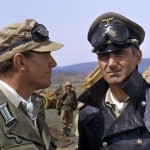
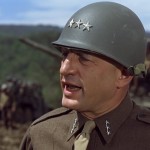
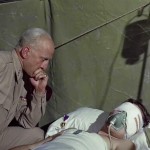
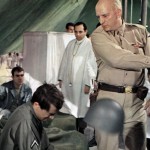
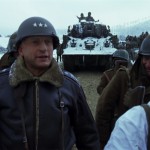

I believe more credit is due the person or persons who chose George C. Scott to play the leading role! Mr. Scott’s performance was superb!….one of the best movies I’ve ever seen!